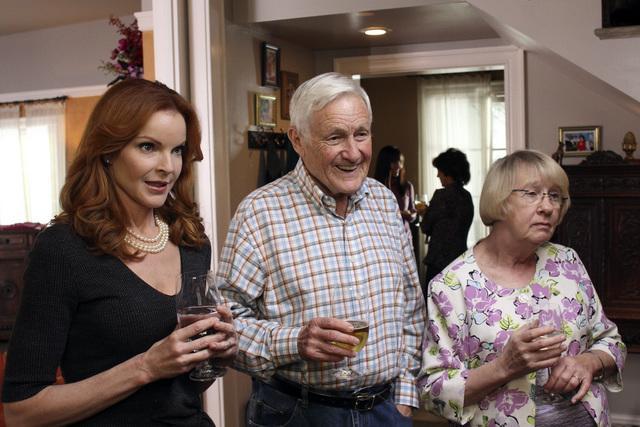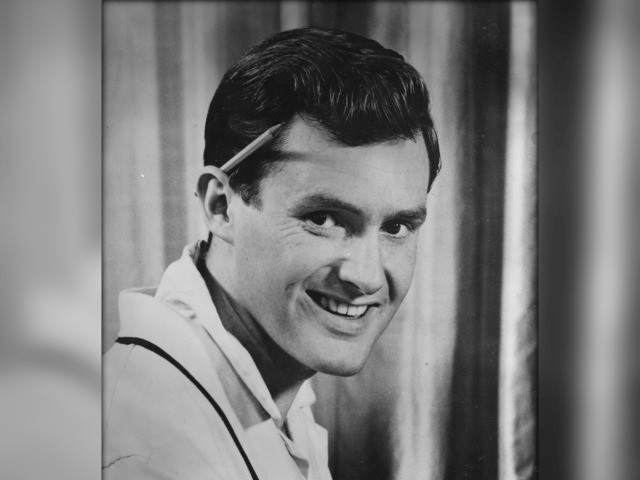Unless you were around then, it’s impossible to imagine what Johnny Carson meant to the country and to show business. For 30 years, starting in 1962, Carson reigned supreme. It wasn’t just his talent, or even his power. It was his judgment.
Americans, and more importantly, the world of show business, respected Carson’s infallible judgment. If Johnny Carson said you have what it takes … you had what it takes.
Talk to any comedian who came of age in the 60s, 70s, and 80s, and they will all tell you the same thing: You couldn’t call yourself a comedian until Johnny beckoned you over to sit next to him.
Tons of comedians appeared on The Tonight Show, but if you go back and look at the reruns, you will see the same thing over and over: as soon as the comedian finishes his or her five minutes, they turn to Carson, because that’s the moment of truth. Would he smile? Would he nod? Would he wave hello? Or… would he invite you over to chat for a few minutes?
If Johnny invited you over, that was it… Everyone knew you had the goods, and no matter what happened next in your career, you would always look back on that moment as the moment.
In those days, in the days before Late Night turned toxic and partisan and tribal, The Tonight Show was it — the ultimate show business meritocracy. Carson did not play favorites.
With all this in mind, now try to imagine what it meant when Carson didn’t invite you over to sit next to him, but instead invited you to sit in his seat, to take his chair, to helm his iconic show.
I don’t know how many people earned the honor of guest-hosting The Tonight Show Starring Johnny Carson, but it was far fewer than took home the Oscar; and Orson Bean, on countless occasions, earned what I consider to be the ultimate show business honor. That’s how talented the man was. And when Orson wasn’t guest-hosting, he was appearing as a guest. We’re talking about some 200 appearances. Johnny Carson, the Zeus of show business, loved him, trusted, him, relied on him. And why not? Orson Bean helped to make that show business era what it was.
You see, it was the era of the raconteur, the personality, the celebrity and star with the rarest of talent: the ability to perform without a net. Sure, there was always some preparation, some kind of outline, but there was no script, just a merciless live audience, and if you didn’t have the goods to be ready for anything, you weren’t going to last very long.
For decades, Orson Bean not only lasted without a net, he thrived. Whether it was his six seasons on To Tell the Truth, a host of other popular game shows, his constant presence on the Tonight Show, Orson Bean was a welcome, warm, and familiar presence in tens of millions of living rooms … all without a net.
He accepted the hardest job of all, not just to make us laugh, but to make us feel good about things, if only for a little while.
In today’s modern era of show business, which is all about self-righteous virtue signaling, politicized sanctimony, and elitism, people can’t imagine that golden era. But there really was a time when the biggest stars in America only wanted to achieve one goal: to make everyday Americans — regardless of how we voted — feel good; to make us smile, or laugh, or move us in some way… The pleasure they received in their work, their own fulfillment came from how they made us feel, from lifting our spirits.
That’s not an easy thing to do, which is why no one really does it anymore. It’s much easier to belittle, to hide behind your sarcasm and ironic distance, and to earn cheers from the partisan choir.
Those are all crutches, and Orson Bean never leaned on a single one of them. Which is not to say he didn’t have beliefs and ideas and opinions. Of course he did. He was his own man. And he sometimes expressed himself here, but always with a twinkle in his eye and the kind of self-deprecation that defined a three-decade era of celebrity at its greatest, the kind of self-deprecation that is all but dead today.
Class. That’s the word: class.
In so many ways, Orson personified that second-to-none era, and he did so for 68 amazing years, starting with his first television appearance in 1952, straight through to an appearance just this year on Netflix’s Grace and Frankie.
On top of that, Orson Bean wrote four books; he appeared on Broadway, off-Broadway, and the stage more times than anyone could possibly count. He performed in nightclubs. There were countless movie and television appearances, including six seasons on Dr. Quinn Medicine Woman and one of the most memorable episodes of the original Twilight Zone, which is memorable primarily because he’s in it.
A 68-year career, and in just the last five years, he appeared on one the biggest television shows around, Modern Family, and had a terrific supporting role in a major film franchise, The Equalizer 2.

Orson Bean, Marcia Cross, and Kathryn Joosten in Desperate Housewives (ABC Studios/Cherry Productions, 2004)
Orson Bean had it all… A wonderful, reassuring presence, the face of a young boy not yet spoiled by the world — a look he never lost. He was smart, hilarious, warm, and never talked down or looked down on his audience. He loved making people happy, and he never stopped. When I heard how he died, two thoughts immediately crossed mind: that a 91-year-old man dying that way is just another reminder of the sick and tragic joke the natural world plays on those who least deserve it, and that he was probably on his way to or from a rehearsal or audition.
He never stopped.
Watch this, watch him 64 years into his career, alone on a stage, telling stories and jokes, winning awards and raves, as he practices the sacred art of making people feel good.
Johnny Carson was never so right.
On a personal note, I didn’t know Orson well, certainly not as well as I would have liked, but every time our paths crossed, in person or electronically, he was the man you hoped he would be while watching him as you were growing up: warm, uncommonly thoughtful, kind, and hilarious. He’s also the only person in 30 years who has ever written me a letter, a hand-written letter sent through the mail. Five, actually, just to say hello or to say thanks for some small thing, or to ask after my wife. Can you imagine?
Knowing how I feel about this news tells me there are no words to console the family Orson leaves behind, a family he was so devoted to. They’ve lost another beloved patriarch in a way so grossly unjust I can hardly wrap my mind around it. His wife Alley, his daughter Susie, his beloved grandchildren… Julie and I send you our continued love and prayers.
Follow John Nolte on Twitter @NolteNC. Follow his Facebook Page here.

COMMENTS
Please let us know if you're having issues with commenting.